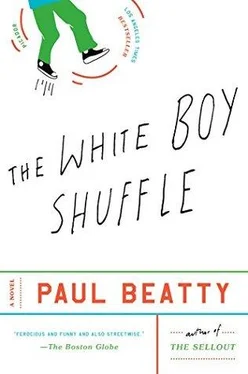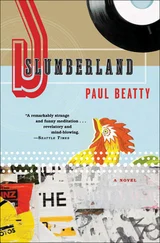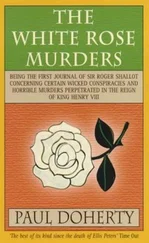Paul Beatty - The White Boy Shuffle
Здесь есть возможность читать онлайн «Paul Beatty - The White Boy Shuffle» весь текст электронной книги совершенно бесплатно (целиком полную версию без сокращений). В некоторых случаях можно слушать аудио, скачать через торрент в формате fb2 и присутствует краткое содержание. Год выпуска: 2001, Издательство: Picador, Жанр: Современная проза, на английском языке. Описание произведения, (предисловие) а так же отзывы посетителей доступны на портале библиотеки ЛибКат.
- Название:The White Boy Shuffle
- Автор:
- Издательство:Picador
- Жанр:
- Год:2001
- ISBN:нет данных
- Рейтинг книги:3 / 5. Голосов: 1
-
Избранное:Добавить в избранное
- Отзывы:
-
Ваша оценка:
- 60
- 1
- 2
- 3
- 4
- 5
The White Boy Shuffle: краткое содержание, описание и аннотация
Предлагаем к чтению аннотацию, описание, краткое содержание или предисловие (зависит от того, что написал сам автор книги «The White Boy Shuffle»). Если вы не нашли необходимую информацию о книге — напишите в комментариях, мы постараемся отыскать её.
The White Boy Shuffle — читать онлайн бесплатно полную книгу (весь текст) целиком
Ниже представлен текст книги, разбитый по страницам. Система сохранения места последней прочитанной страницы, позволяет с удобством читать онлайн бесплатно книгу «The White Boy Shuffle», без необходимости каждый раз заново искать на чём Вы остановились. Поставьте закладку, и сможете в любой момент перейти на страницу, на которой закончили чтение.
Интервал:
Закладка:
“That depends. Do you want to grow carrots?”
“Do we need carrots?”
“Yes, carrots are good.”
“Good as gold.”
“There’s nothing better than a good smoke.”
“Phlegm.”
“Now there was a professional.”
And so on until the helicopter peeled away with the dawn.
* * *
Yoshiko and I took midnight strolls through Hillside, our path lit by the huge flashlight in the sky. Yoshiko liked to pretend she was a newly discovered blues musician fresh from the Mississippi Delta cotton fields, on her first major tour. “Newport 1961.” She didn’t sing; she introduced herself, the band, and the song. “My name is Lipless Citrus Lime; and dese heah boys is the Dickless Wonders. We gonna play a country blues called, ‘We Gonna Play a Country Blues.’” She would close her eyes and hum and moan for about a minute, then bow to the invisible crowd, basking in the spotlight, saying, “Thank ye, thank ye” for another ten minutes. Once a week or so she’d march through the neighborhood carrying a sign updating the status of the baby. “When am I due? Five more days. Come to the natural birthing of the child. Reynier Park — free admission if you bring a clean towel.”
Sometimes Psycho Loco would join us on our walks, dispensing his opinions with every swallow of his Carta Blanca. “What kind of black man would let his wife give birth in the park?”
“You know, I think she’s doing it as a way of replacing Scoby. Giving something back to the community.”
At first the light (and maybe Yoshiko’s odd behavior and Psycho Loco’s presence) scared everyone away. We’d come strolling down the street, lit up like circus clowns under the big top, and the crowd would scatter like kitchen roaches. Eventually, emboldened by our regularity, folks joined us in the circle, and invariably they stared straight into the light source. “Don’t look directly into it, you’ll go blind.”
We induced labor, making love with the purple and gold dusk beaming through the grimy motel windows. I carried Yoshiko down the stairs and propped her in a wheelchair I’d stolen from the hospital and wheeled her through the streets of Hillside. It was like a one-float parade. Yoshiko’s sign read “When am I due? Now. Come to Reynier Park. Admission free if you don’t say, ‘Oh, look at all the blood,’” and she waved weakly at the people who lined the streets, shaking hands with those who came to the wheelchair to bestow flowers. The searchlight seemed especially bright that warm Friday night.
When we arrived at the park, the neighborhood welcomed Yoshiko with a huge ovation. The stoical Gun Totin’ Hooligans provided security, Manny and Sally Montoya supplied clean towels and rubber gloves from the barbershop, and Ms. Kim brought refreshments from her new store. My mom was the midwife, and her obstetric skills were in evidence as she led Yoshiko to a small section of grass turned into a birthing theme park. There my mother had constructed an outdoor maternity ward out of tarpaulins, beanbags, and throw pillows. Next to this was a small bathing pool and a table lined with shiny medical supplies: sutures, scissors, a clamp, and a cellular phone in case of emergency.
Yoshiko undressed and slipped into the pool, flopping around with each twinge of labor pain as my mom checked her blood pressure and timed the contractions. The locals filed by, shouting encouragement and wishing Yoshiko luck. After a few hours it was time; Yoshiko clambered onto the cushy mountain and squatted on the ridge of beanbags. My job was to massage her feet, feed her salted soybeans, and wipe her down with cold sponges. When my mother commanded her to push, Yoshiko looked me in the eye and squeezed my biceps to mush. I returned her gaze, trying to think of something reassuring to say, but all that came out was “Beautiful, beautiful.”
Yoshiko stopped grimacing, and my mother placed a slimy guck-covered infant on her chest. It laid its teeny head on her breast; the mother smiled, and the baby made a gargoyle face that I called a smile. Naomi Katsu Kaufman was welcomed into the world with kisses. There was cheering, the blasts of car horns, and bottle rockets bursting in the night sky. A box of cigars attached to a small parachute landed next to the newborn. The card read, “Congratulations from the Los Angeles Police Department. Maybe this one will grow up with a respect for authority.” I couldn’t be sure, but it looked like my father’s hand.
I lit a stogie and put an arm around my wife and child. “Ewwww. She looks like the Creature from the Black Lagoon.”
“Gunnar.”
“I’m just saying.”
My mom put a cereal bowl in my hands and shoved me into the hallowed junction of Yoshiko’s spread legs.
“Squat.”
I did as ordered, hunkered in front of my wife’s swollen vulva and gently kissed her bloody perineum, and awaited the afterbirth. “Ma, this is fucked up. You know, this is my favorite cereal bowl.” Yoshiko reached between her legs and condescendingly patted my forehead. The placenta dropped into the bowl, a quivering bloody mass of now useless organ. Someone in the crowd asked when we were going to do this again. I answered, “Next week” and lifted the pulpy organ in the direction of the officers in the helicopter. “Thus behold the only thing mightier than yourself.”
Yoshiko laughed and said, “ Roots, right? Come over here and cut the cord, then give me a beer and a kiss.”
* * *
Every Friday night we held outdoor open mikes, called the Black Bacchanalian MiseryFests, under the LAPD’s simple but effective stage lighting. We jerryrigged a sound system using car stereos loud enough to drown out the noise from the helicopter. I was the emcee, Yoshiko the stage manager, and Psycho Loco did everything else. The shows lasted all night, and the neighborhood players read poetry, held car shows, sang, danced, ad-libbed harangues about everything from why there are no Latino baseball umpires to the practicality of sustaining human life on Mars. Sometimes troupes of children simply counted to a hundred for hours at a time.
Every week there was at least one hour of Community Stigmas. Community Stigmas was a loosely run part of the MiseryFest where the neighborhood’s stigmatized groups got a chance to kvetch and defend their actions to the rest of the neighborhood. I’d call the registered voters to the stage to explain why they bothered, request that all the welfare cheats step forward and share their fraudulent scams, ask the panhandlers to say what they really thought of their spare-change benefactors, offer fifty dollars to any Muslim who’d eat a fatty slab of bacon. The most poignant nights were the ones when the recovered addicts stepped into the light to soak up the warm applause and address the crowd. “I want to thank all my cool outs who stood by me, but mostly I want to thank self for not giving up on self.” Then I’d ask all the current users to step up into the ring of light and speak out. The bold users would swagger into the circle, smoking their pipes, needles dangling from their arms, playing up to the boos like villainous wrestlers. The invitations weren’t always voluntarily accepted, and a few reluctant baseheads would be forced into the spotlight by disgruntled friends and family. No one could leave until he’d said something, anything from “I promise on my grandmama’s grave to stop” to “I don’t give a fuck. I’ll smoke till white people have feelings.” The drug dealers also got their say. Every third Friday we’d have Psycho’s Analysis, where Psycho Loco conducted these heartwrenching gangbanger tribunals. Some hoodlums would volunteer to bare their souls. They’d sit on wooden stools, speaking thoughtfully into microphones, unburdening themselves like war criminals, black gunny-sacks stretched over the heads of the wanted ones to prevent the police from using an overhead skycam to identify them.
Читать дальшеИнтервал:
Закладка:
Похожие книги на «The White Boy Shuffle»
Представляем Вашему вниманию похожие книги на «The White Boy Shuffle» списком для выбора. Мы отобрали схожую по названию и смыслу литературу в надежде предоставить читателям больше вариантов отыскать новые, интересные, ещё непрочитанные произведения.
Обсуждение, отзывы о книге «The White Boy Shuffle» и просто собственные мнения читателей. Оставьте ваши комментарии, напишите, что Вы думаете о произведении, его смысле или главных героях. Укажите что конкретно понравилось, а что нет, и почему Вы так считаете.












